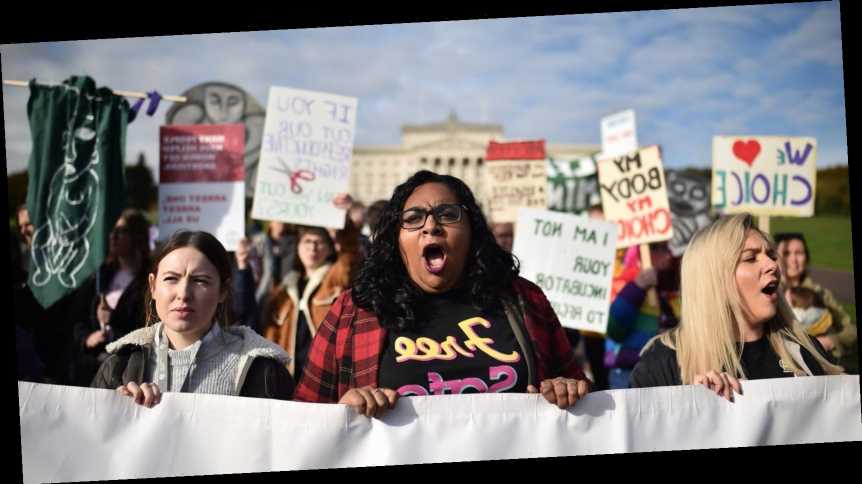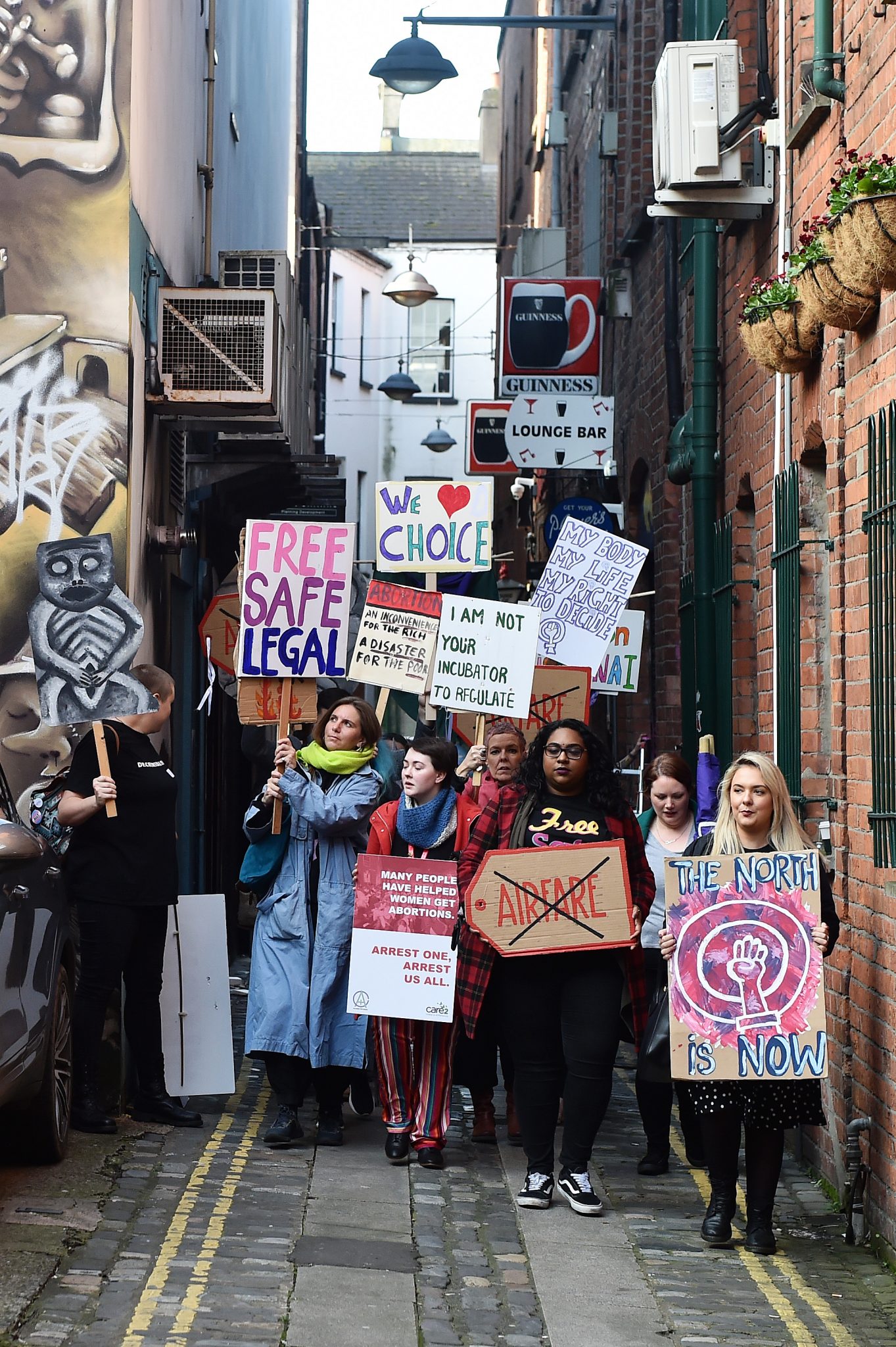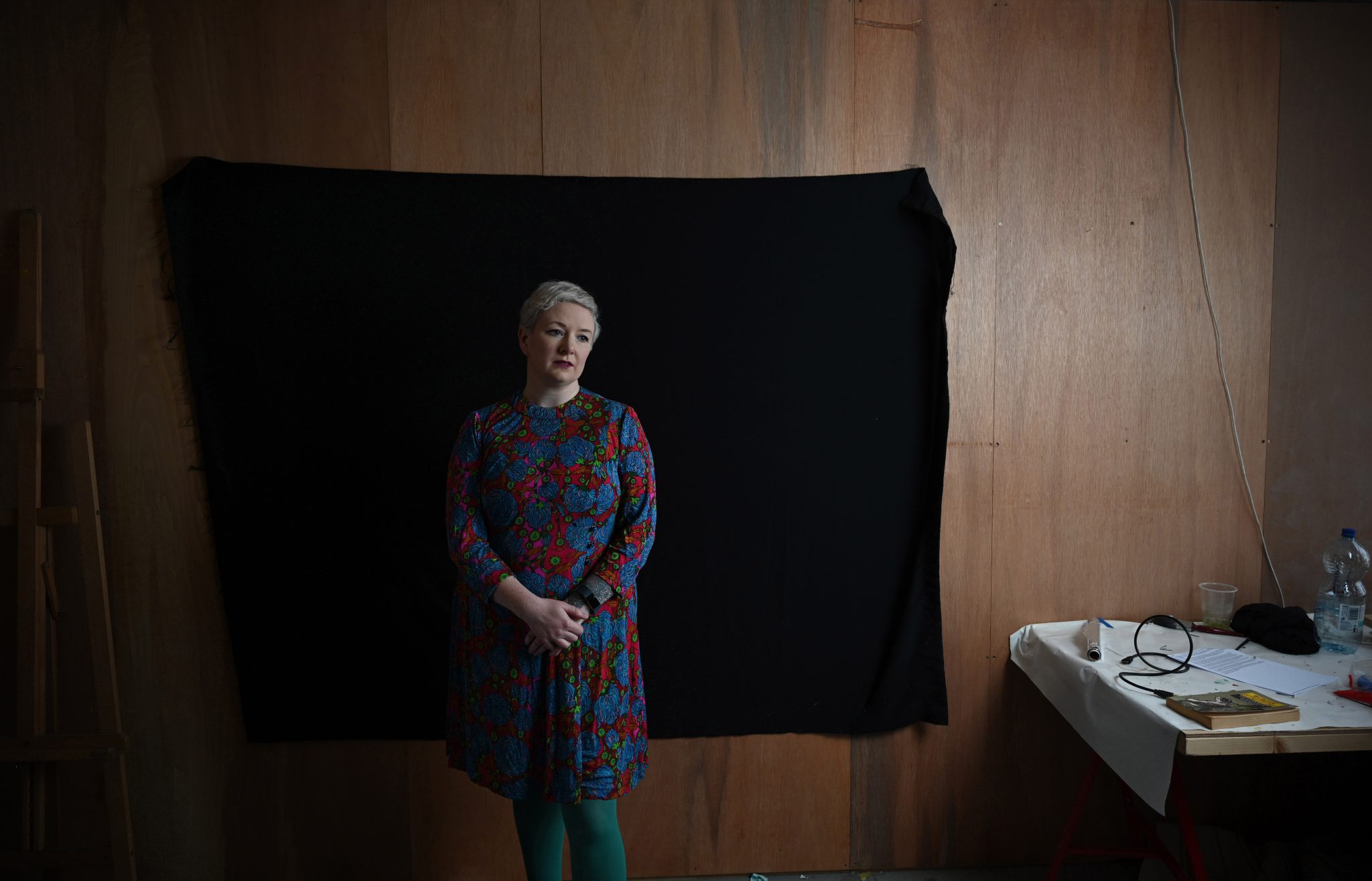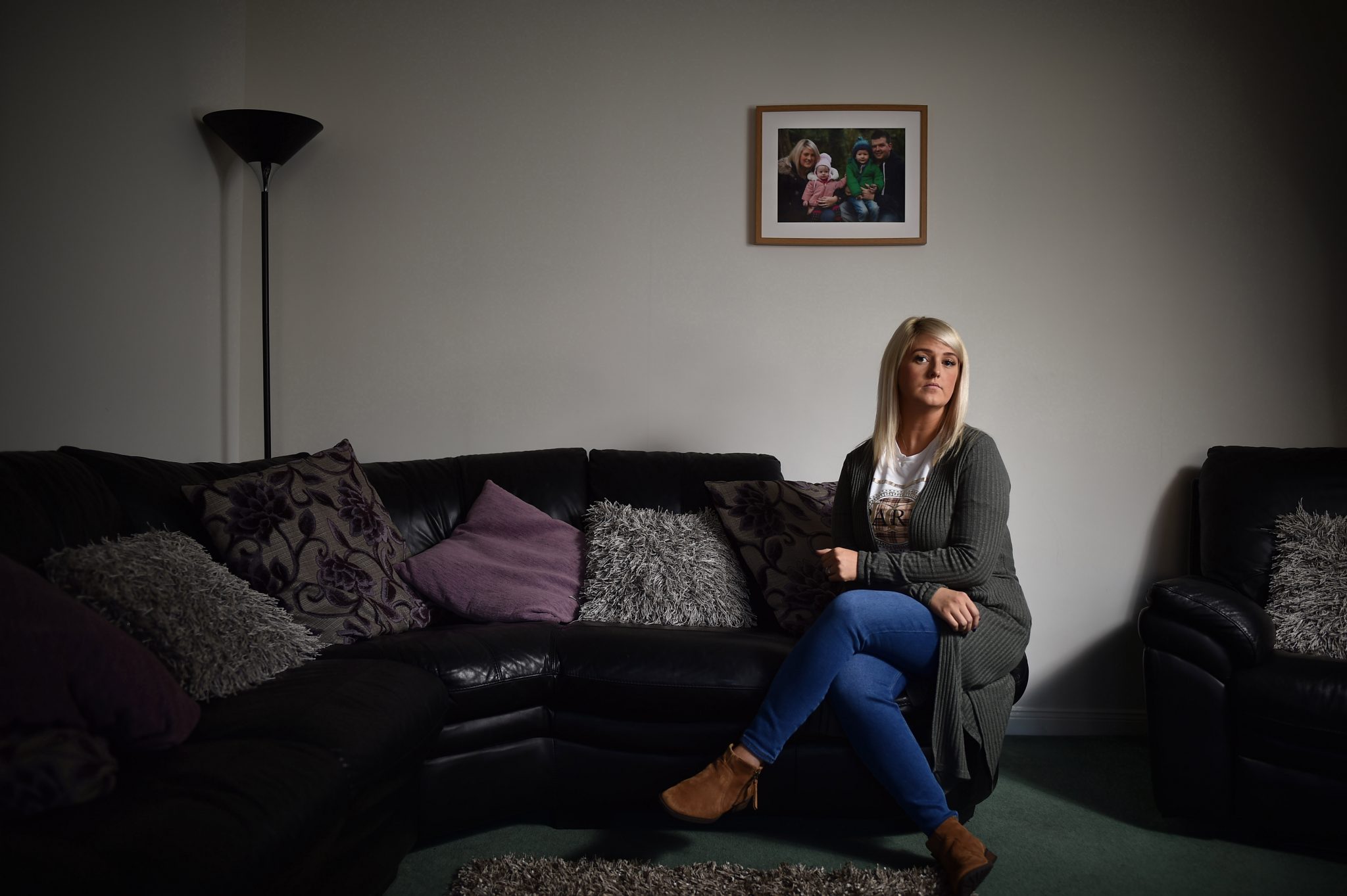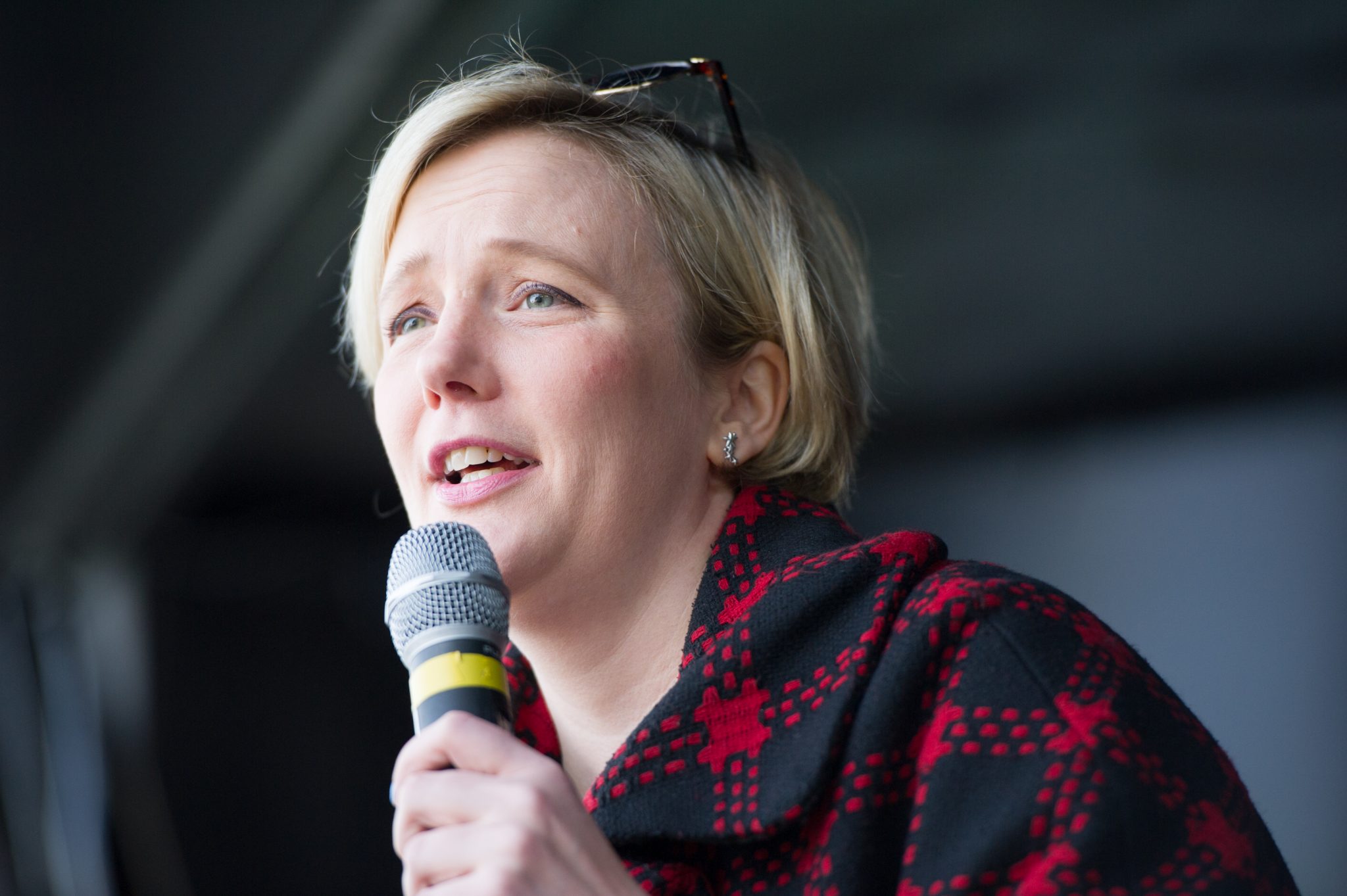Written by Moya Crockett
Moya is Contributing Women’s Editor at stylist.co.uk and Deputy Editor of Stylist Loves, Stylist’s daily email newsletter. Carrying a bottle of hot sauce on her person at all times is one of the many traits she shares with both Beyoncé and Hillary Clinton.
After decades of campaigning by pro-choice activists, abortion has been decriminalised in Northern Ireland. As we celebrate the expansion of reproductive rights across the UK, it’s vital that we also pay tribute to the people who made change happen.
When you’ve been waiting for something for years, it can feel slightly surreal when it finally happens. That’s how it feels to know that abortion has been decriminalised in Northern Ireland: surreal.
Abortion has been illegal in the country for such a very long time – since 1861, when the Offences of the Person Act banned terminations under almost all circumstances across the UK. (The Abortion Act 1967, which decriminalised abortion in England, Scotland and Wales, was never extended to Northern Ireland.) And the treatment of those who have had or needed abortions in Northern Ireland has been so very cruel: women forced to carry terminally ill foetuses; women denied abortions even in cases of rape or incest; women prosecuted for terminating a pregnancy, or for helping other women access abortion pills.
Amidst all the chaos of Brexit – a crisis in which Northern Irish politics has played a pivotal role – it has often seemed as though some politicians in Westminster would prefer to ignore the abortion issue. Theresa May consistently said it was up to the devolved Northern Irish government to decide on changes to the country’s abortion law, despite the fact there has been no functioning government in Belfast since January 2017.
Often, it looked like reproductive rights in Northern Ireland might be sidelined in order to pacify the Democratic Unionist Party (DUP) – the deeply conservative, anti-choice politicians whose support has been crucial to both May and Boris Johnson.
But now, Northern Ireland is getting both reproductive and equal marriage rights, thanks to a bill spearheaded by Labour MPs Stella Creasy and Conor McGinn. The legislation – which was passed by parliament in July, without Johnson’s support – stipulated that Northern Ireland’s ban on abortion would be lifted, and equal marriage legalised, unless the Northern Ireland Executive was restored before midnight on 21 October. And that didn’t happen, despite the DUP making a lot of noise about it.
As a result, women currently facing criminal trials for abortion-related crimes have had their prosecutions dropped with immediate effect. New regulations to facilitate abortion access in Northern Ireland must also be introduced by March 2020. At long last, no women in the UK will be denied bodily autonomy under the law. It is a momentous occasion.
But as we celebrate the decriminalisation of abortion in Northern Ireland, it’s essential that we also pay tribute to the people who got us here. Below, we’re honouring the women who helped make history.
The activist groups
Liberalising abortion laws isn’t quick or easy. Grassroots campaign group Alliance for Choice has been pushing for free, safe, legal access to abortion in Northern Ireland since 1996, organising regular pro-choice rallies, talks and fundraising events.
A major part of Alliance for Choice’s mission has been to destigmatise and demystify terminations, by amplifying the voices of those affected by Northern Ireland’s abortion law. In recent years, they’ve done this through beautiful, moving videos and impossible-to-ignore social media campaigns – driving home what it’s really like to have to travel to another country for an abortion, or illegally end a pregnancy at home without medical support.
“I think we’re still pinching ourselves,” Emma Campbell, co-convenor of Alliance for Choice, tells Stylist. “Up until now, if you taught in a Catholic school and they found out you’d had an abortion or even just supported [Alliance for Choice], you could face the sack.
“The idea that from 22 October, we’re going to be able to give out public health information without worrying about prosecution is just incredible. There’ll be no prospect of having our homes raided or our mail intercepted anymore. No more needing to use code words to people because they’re scared you might be the police. For us, and more importantly for the people that need access [to abortion], that will just be such a huge step forward.”
Alliance for Choice has been supported in its mission by many other feminist medical and activist organisations, including Amnesty UK, Doctors for Choice UK, Women Help Women, the Abortion Support Network and Marie Stopes. In the Republic of Ireland, they’ve been backed by the Abortion Rights Campaign, which has lobbied for people from Northern Ireland to be able to access free abortions south of the border.
Earlier this year, the Abortion Rights Campaign’s UK sister group – the London-Irish Abortion Rights Campaign – crowdfunded over £17,500 to take the UK government to court for its failure to provide safe abortion access to people in Northern Ireland.
“The London-Irish Abortion Rights Campaign has brought people in London together to campaign for abortion rights across the island of Ireland,” says Katherine Nesbitt, a London-Irish Abortion Rights Campaigner from Northern Ireland. “We are proud to have campaigned in solidarity with groups in Northern Ireland, Ireland and England.”
“We marched, we protested, we lobbied our MPs, we tweeted, we chanted, we took legal action against the British government and women spoke out about how the law failed them,” agrees London-Irish Abortion Rights Campaigner Cara Sanquest. “Today belongs to everyone who has demanded change.”
The anonymous women who faced prosecution for buying abortion pills
No one should be threatened with prison for ending a pregnancy. But in recent years, shocking stories have forced the world to reckon with the reality of Northern Ireland’s abortion ban. These include the news that a 21-year-old Belfast woman received a suspended prison sentence in 2016 for taking safe abortion pills – and the revelation in 2015 that a woman was facing prosecution for buying abortion pills for her daughter.
At the time of the termination, the woman’s daughter was 15 years old and in an abusive relationship. A doctor at her GP’s clinic had reported her to police. In June 2016, a date for the mother’s criminal trial was set for November – but thanks to decriminalisation, this will no longer happen.
These women should never have had to endure such trauma. But their stories undoubtedly helped shift the public mood, making more and more people aware of the urgent need for change.
The women who shared their own stories
Just like no woman should ever be prosecuted for ending a pregnancy, no woman should ever feel obliged to publicly discuss her own trauma. Yet over the years, many Northern Irish women have courageously pushed for change by sharing their stories of having – or being denied – abortions.
These women include Sarah Ewart, who took Northern Ireland’s justice and health departments to court after she was forced to travel to London for an abortion (her baby had been diagnosed with a fatal foetal abnormality). Earlier this month, Belfast High Court ruled in Ewart’s favour, concluding that Northern Ireland’s abortion law violated the UK’s human rights commitments.
Denise Phelan and Ashleigh Topley, who also received diagnoses of fatal foetal abnormalities while pregnant, appeared in court alongside Ewart in 2018. Topley and Phelan both suffered stillbirths after being denied abortions, and both have told their stories repeatedly in the hope of influencing a change in the law. Topley also runs the In Her Shoes NI accounts on Instagram, Twitter and Facebook, providing a platform for other women to anonymously share their stories.
“In 2014 when I needed an abortion and was denied one, I swore I would add my voice to the campaign for abortion rights and to have achieved that is just incredible,” says Topley. “This will never undo my experience, but it has given a purpose to my pain and I am relieved that no one will now have to go through what I did.”
The women who took abortion pills as an act of protest
Real political change takes radical solidarity. After hearing about the 21-year-old who ended up in court for taking abortion pills in 2016, three older women walked into a police station in Northern Ireland and demanded to be prosecuted for the same crime.
Collette Devlin, Kitty O’Kane and Diana King – then aged 68, 69 and 72 respectively – told police in Derry they had taken abortion pills and procured them for other women. The retirees wanted their protest to highlight how marginalised women suffered the most as a result of Northern Ireland’s abortion law.
“We couldn’t believe that in the 21st century, 100 years after women got the vote, that a young girl could be treated like this,” Devlin told The Irish Times.
Devlin, O’Kane and King weren’t the only women to protest the ban on abortion pills. In 2015, over 200 pro-choice campaigners wrote an open letter to Northern Ireland’s public prosecution service, admitting to procuring abortion tablets for themselves or others. And in June 2018, women dressed as handmaids swallowed abortion pills in front of police officers in Belfast.
The politicians
Activists have been advocating for the decriminalisation of abortion in Northern Ireland for years, but it took politicians to get the issue over the line.
In Northern Ireland, England, Scotland and Wales, MPs from virtually every political party, with the exception of the DUP, have voiced their support for changing the law. They include Conservatives such as Nicky Morgan, independents like Anna Soubry, Liberal Democrats including Jo Swinson, the Green Party MP Caroline Lucas and the SNP leader Nicola Sturgeon.
But it was Labour MP Stella Creasy who led the charge in the Commons to extend abortion rights across the UK by amending the Northern Ireland Bill. Her fellow Labour MP Conor McGinn, who was born and raised in County Armagh, Northern Ireland, spearheaded the equal marriage amendment.
Creasy tells Stylist that the decriminalisation of abortion is the first step towards “getting women in Northern Ireland equal rights with their counterparts in England and Wales”. She adds that the legislation that came into force on 22 October requires Julian Smith – the secretary of state for Northern Ireland – to “uphold human rights standards for abortion from start to finish”.
“It is vital that we do not now see any backroom deals in parliament [that would allow] the assembly to water down the commitment we made to treat women in Northern Ireland as equals,” Creasy says.
“We will accept no more delays in the regulations governing access. Women in Northern Ireland have waited long enough.”
Images: Charles McQuillan/Getty Images
Source: Read Full Article
